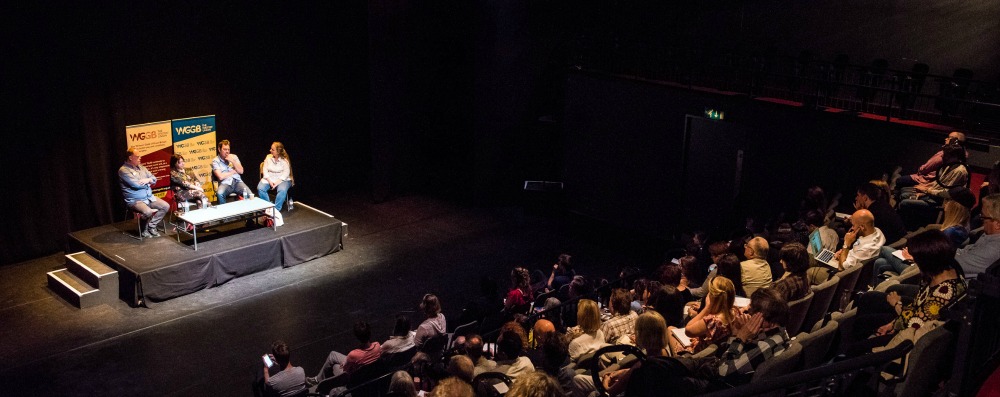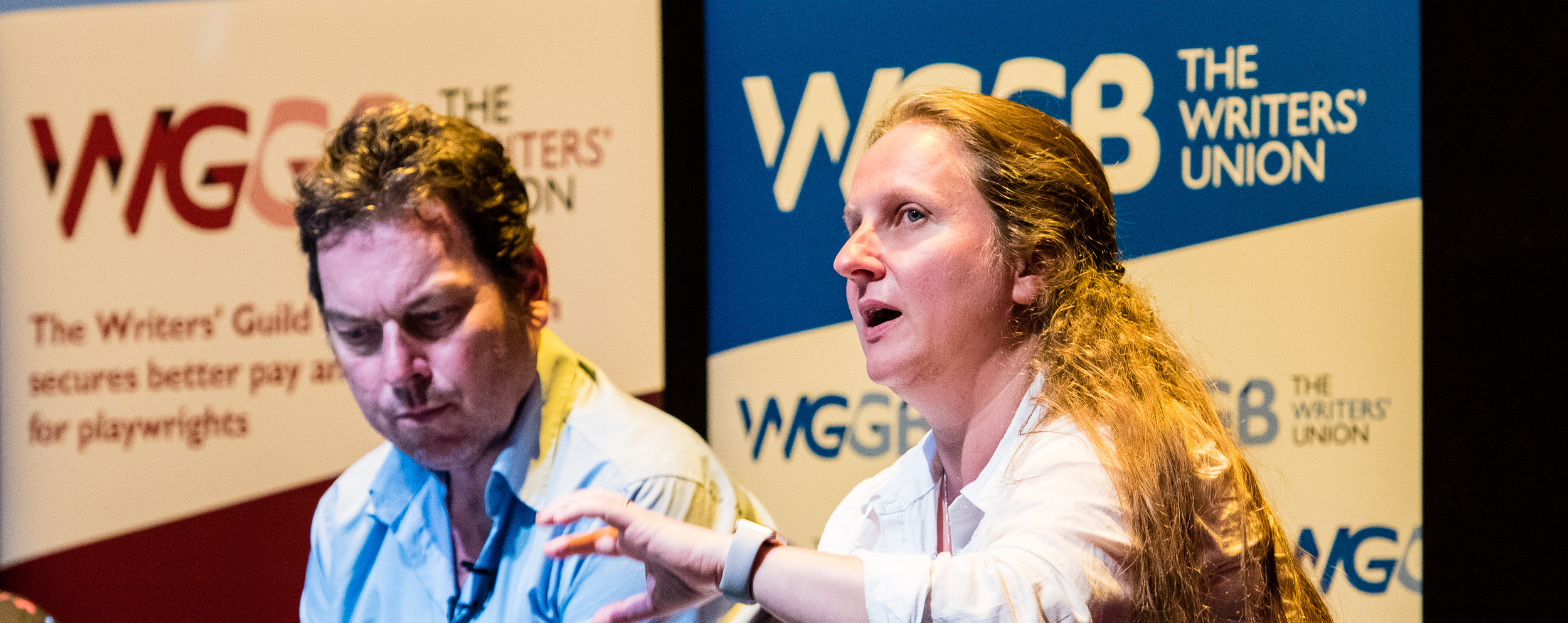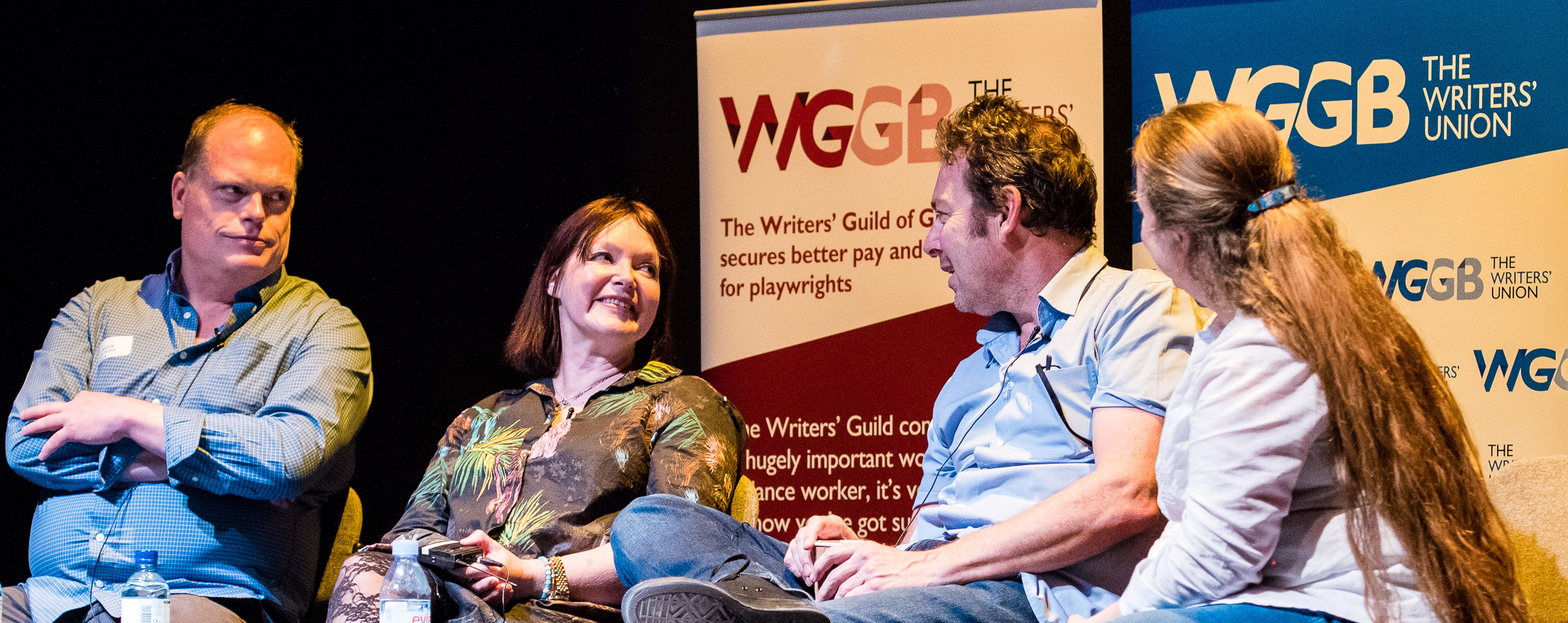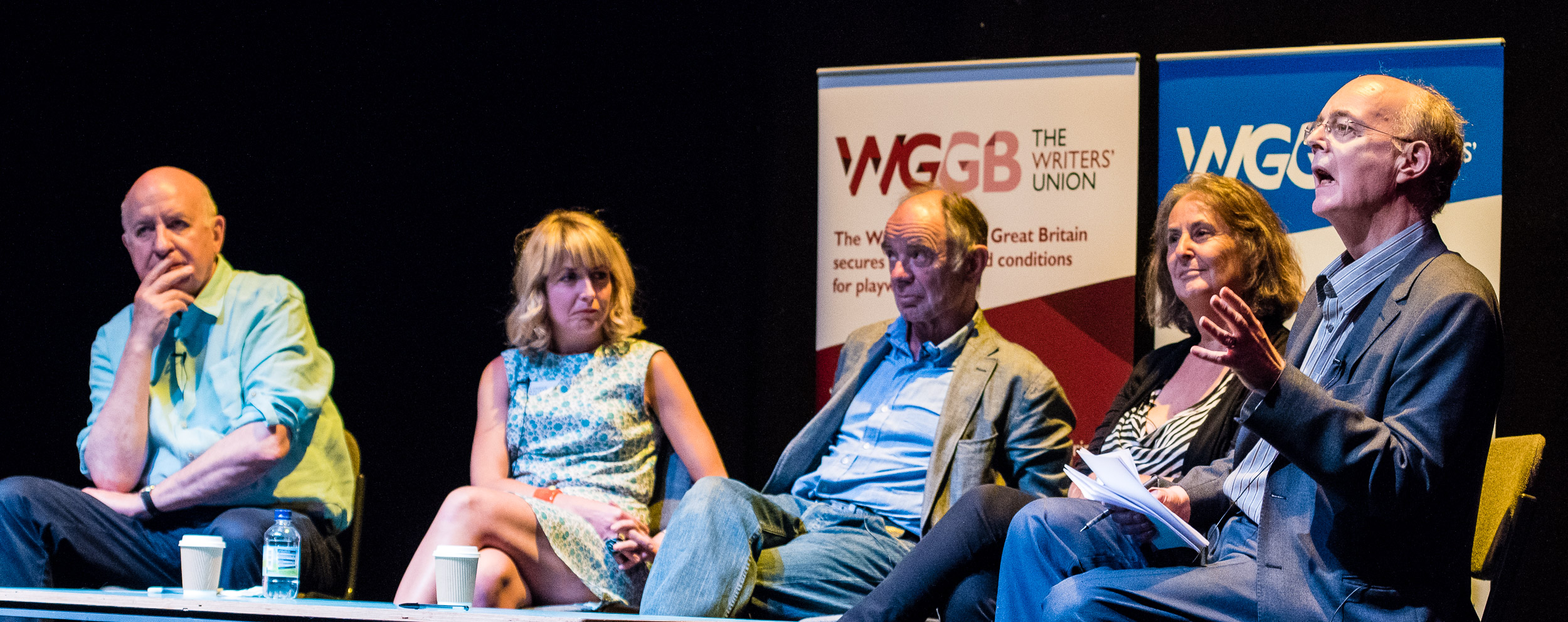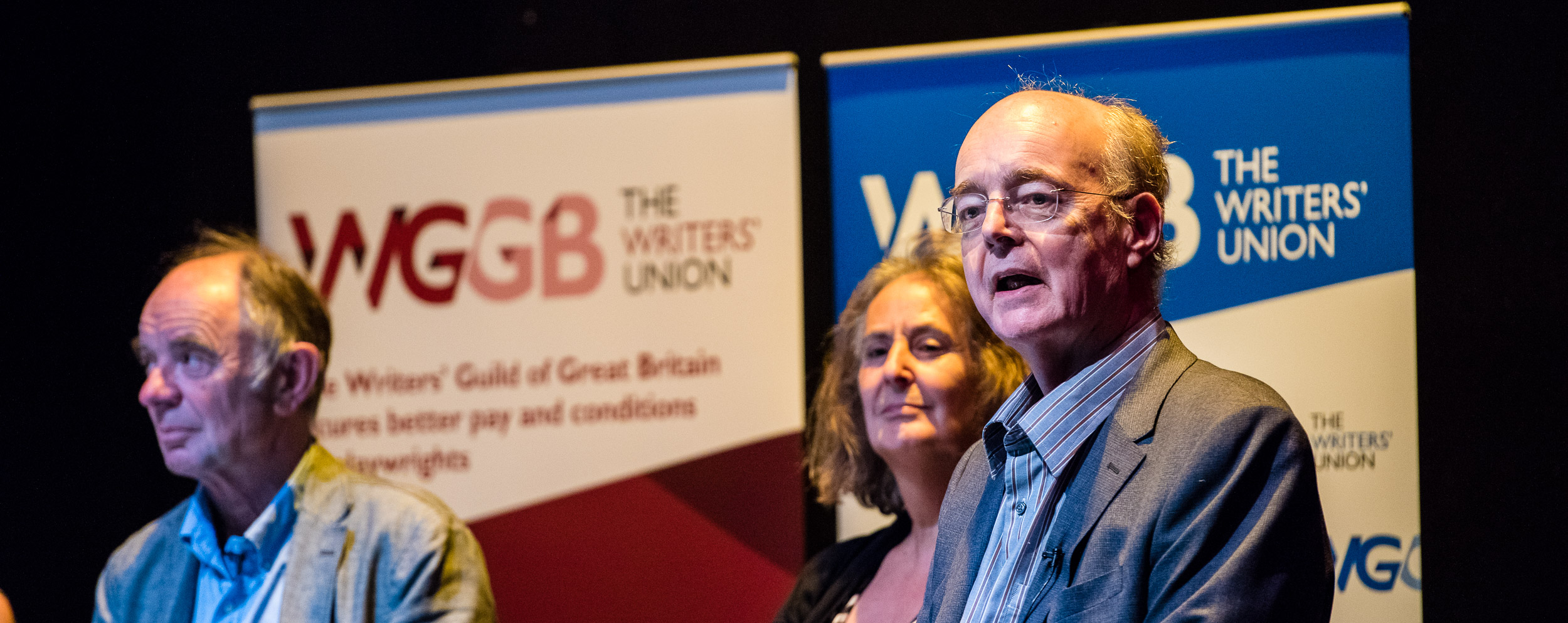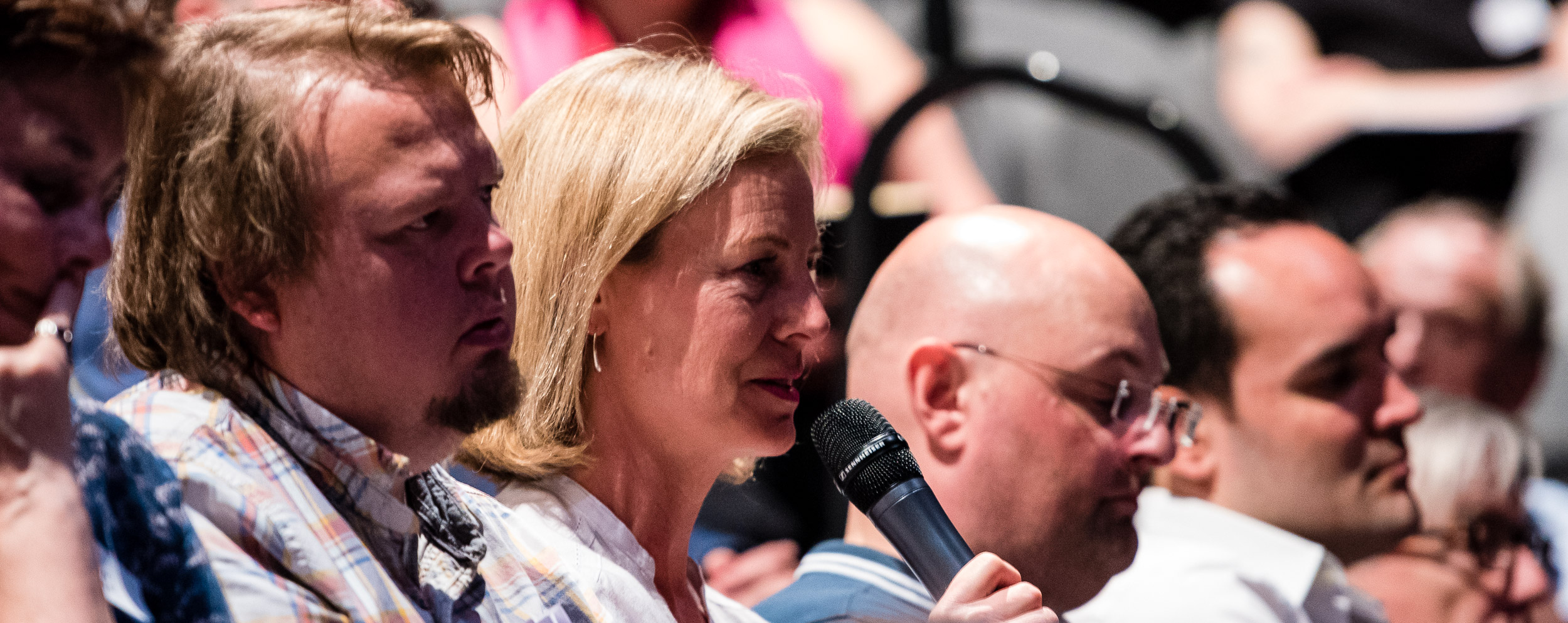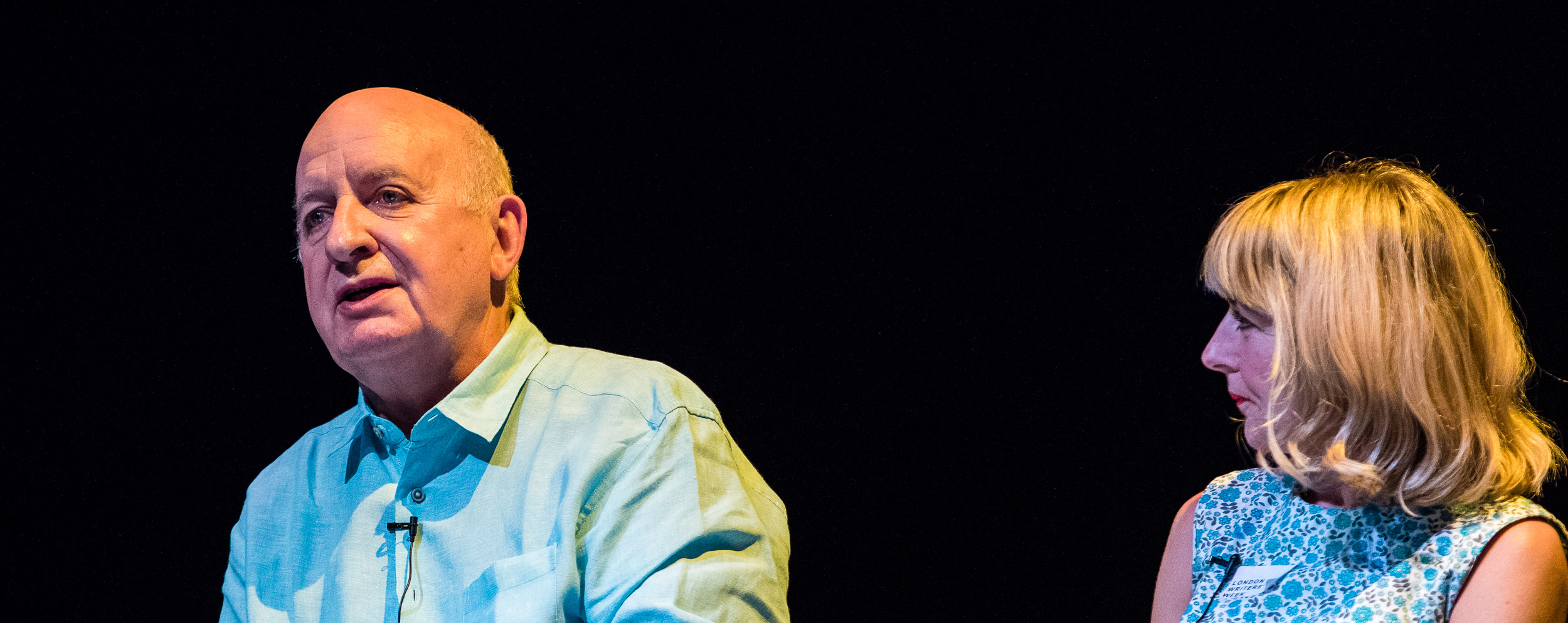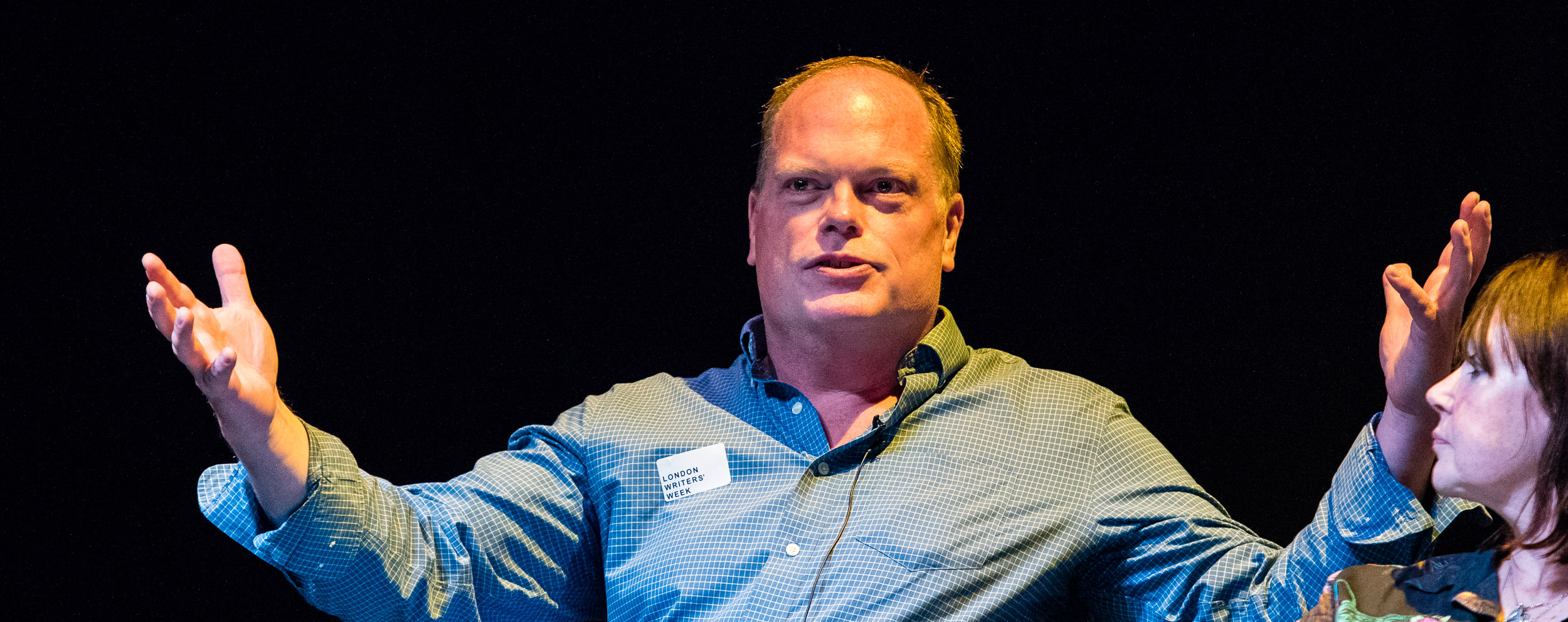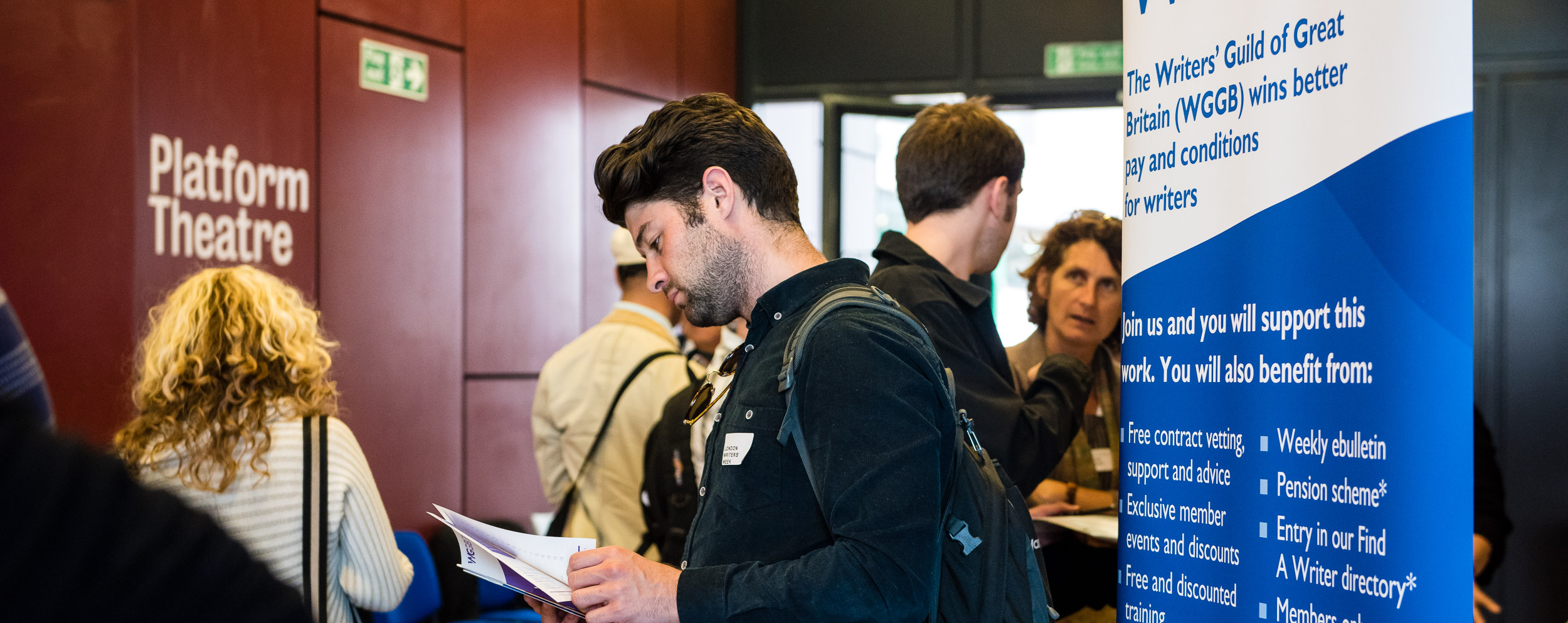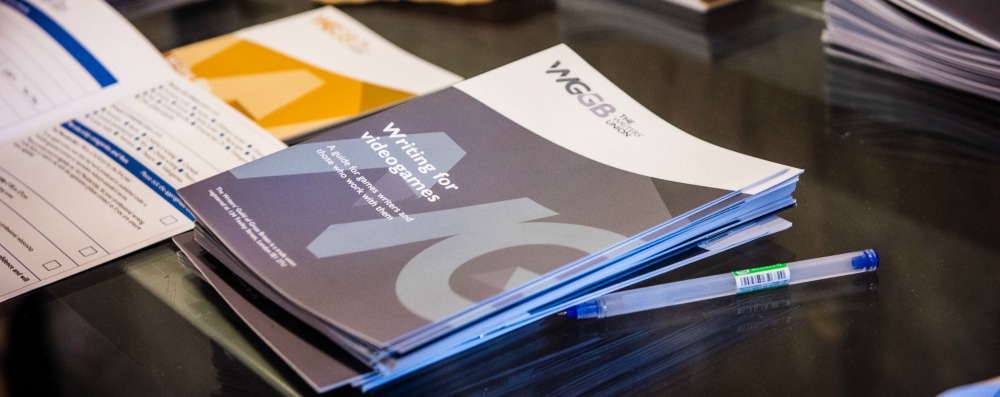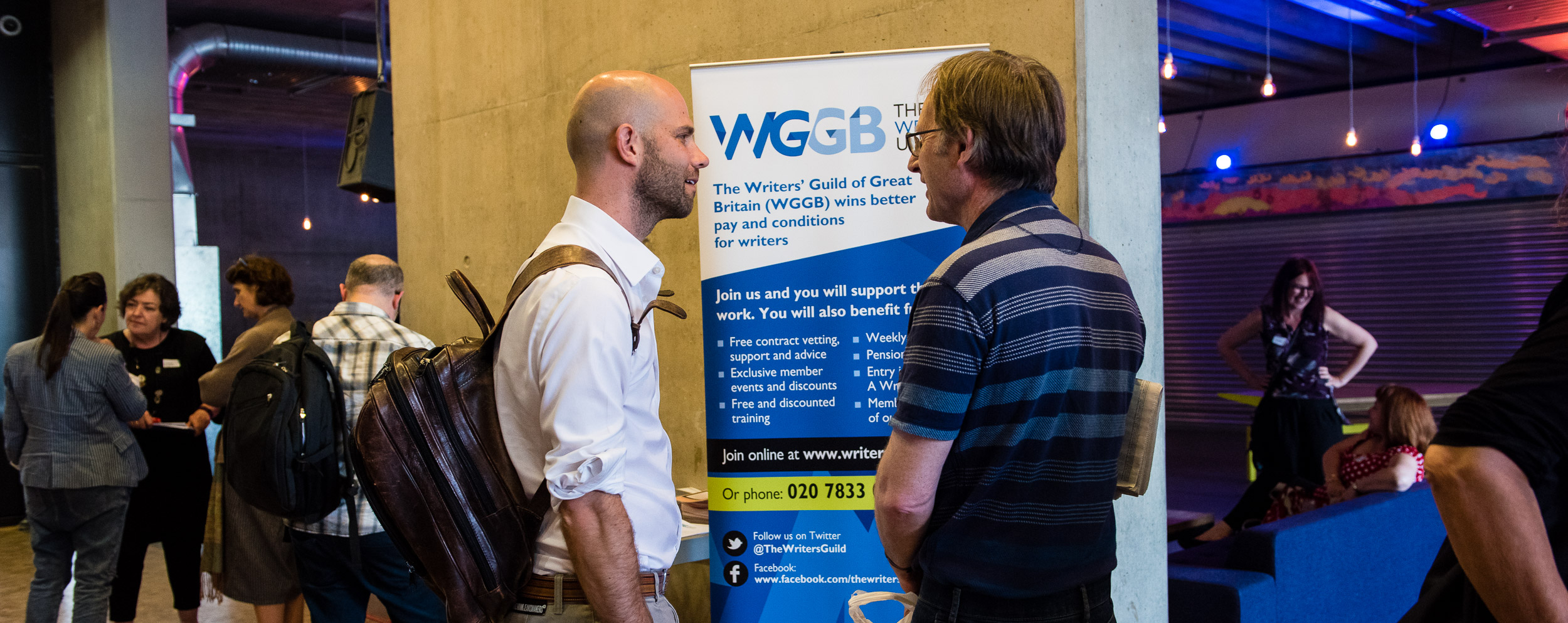The craft of writing for two non-conventional forms of theatre came under the spotlight at London Writers’ Week on 6 July 2016, with two panel events at Central Saint Martins college chaired by WGGB Theatre Co-Chairs Jenifer Toksvig and David Edgar.
And panellists debating musical and fact-based theatre found they had common ground. Alecky Blythe, a leading practitioner of verbatim (a form of documentary theatre in which plays are constructed from the precise words spoken by interviewees), talked about London Road, her 2011 musical exploring the murders and subsequent trial of serial killer Steve Wright in 2006-2008.
“The music enhanced the feelings people had. Take the music away and it didn’t have the same feeling. Music added emotion.”
Her thoughts were echoed by musical bookwriter panellists Rob Hartmann (Vanishing Point), Catherine Johnson (Mamma Mia!) and Joe Penhall (Sunny Afternoon).
“In musical theatre you can have a piece of music that does the job of monologue,” said Joe Penhall. “In normal playwriting it works through the words. Music imparts so much emotion and feeling. It can be euphoric or righteous or sad. You have a massive colour palette and great scope that you can’t have in other forms of theatre… Songs articulate nuance and complexity… You can transplant that… There are certain stories that lend themselves to a musical form – there are stories that belong in that form”
Penhall spoke about writing the book for the hit musical Sunny Afternoon, about 1960s rock band The Kinks, in collaboration with frontman Ray Davies, who wrote the music and lyrics.
“I knew and loved the music of The Kinks,” he said. “It was a prototypical story and I was fascinated by that… I knew that you could create something that music and a play on its own couldn’t do.”
Mamma Mia! – the hit musical about Swedish rock group ABBA – followed a similar process. Catherine Johnson, who wrote the book and described how “the story came out of ABBA’s lyrics”, collaborated with band members Bjorn Ulvaeus and Benny Andersson.
“We had the same views,” she said. “They liked my writing. They felt they could trust me with their songs.”
She spoke about how she wanted to create something “out of the everyday” and also “to sneak something in” about single parents, an issue close to her heart and one that had received negative coverage in the press when she had been writing it in the late 1990s. “I want to have something to say but I don’t want it to be obvious… you can be hard hitting as well as funny,” she explained.
Other subjects debated by the bookwriting for musical theatre panel included the question: what is ‘book’? “It’s not just the talky bit between the songs,” explained Rob Hartmann. “It’s the underlying structure, the world you are taking people into.”
Hartmann and the other panellists also cautioned against too much fixation on the ‘form’. “It’s a paralysing thought,” he said, “to say ‘today I have to reinvent the form’. All musicals and theatre and art are problem solving… Books that say ‘here is how you do musical theatre… here is how you do screenwriting, here are the tropes of the genre’, have contributed to a lack of imagination.”
Hartmann did however admit that there was a uniqueness to the musical theatre form: “The music in musical theatre does what the image does in a movie.”
Working with musicians, lyricists and choreographers also came under discussion and the panel agreed that musical theatre is an essentially collaborative medium.
There was the suggestion that collaboration was like a marriage, and Joe Penhall said: “You end up staying together for the sake of the children… It’s a completely collaborative art form… To do it you have got to love transformation.”
Rob Hartmann agreed: “The collaborations that work best are the ones that are fluid. The minute people start putting up boundaries it just doesn’t work.”
And Catherine Johnson spoke positively about her relationship with the choreography team on Mamma Mia! and their vital input on the final scene, which saw her revise her original concept.
Introducing the second panel event on fact-based theatre, WGGB Theatre Co-Chair David Edgar described the genre as having had a “remarkable role for the last 15 years” in which it had become the “prominent way people have sought to tell the story of our times.”
Fact-based theatre, he explained, took five forms: tribunal theatre (based on verbatim reconstructions of public inquiries); testimony theatre (based on verbatim interviews of individuals connected with a particular event); a hybrid of both these forms; ‘factional’ theatre in which real stories are told in a fictional way; and ‘possumentary’ drama, in which a play explores something based on a real event that might have happened.
Panellists were Alecky Blythe (London Road, Come Out Eli, The Girlfriend Experience); Alistair Beaton (Feelgood, King of Hearts, The Trial of Tony Blair); Gillian Slovo (The Riots, Guantanamo: ‘Honor Bound to Defend Freedom’, Another World: Losing Our Children to Islamic State); and Robin Soans (A State Affair, The Arab–Israeli Cookbook, Talking to Terrorists and Crouch, Touch, Pause, Engage).
All four had started out in other careers. Alecky Blythe described how she had been “trying and failing” to make a living as an actor when she came across an acting class where she learnt a technique which centred around conducting interviews with other people. She “got the bug” for this way of working, which led her to put on group shows. Come Out Eli, her first verbatim play, came about after she stumbled across “a siege at the end of my road” in Hackney in 2002, which lasted for 15 days. Using her Dictaphone to collect interviews, it came to tell the story of how the community made sense of this extraordinary event. “My Dictaphone gave me licence into other people’s lives,” she said, adding later that “verbatim plays can be epic, they speak to humanity.”
Robin Soans had also been working as an actor, and was performing in a production of Waiting Room Germany at the Royal Court in the mid-1990s, which contained interviews with people from both sides of Germany, five years after the Berlin Wall came down. His conversion to verbatim theatre came after he realised what a profound effect the play was having on the audience. “They were totally gripped. They were laughing and crying, spontaneously.” He went on to write Across the Divide, based on a large number of interviews in Ken Livingstone’s Brent East constituency in the months following the 1997 General Election, and told the audience he felt that verbatim theatre played an important role in giving a voice to the voiceless.
Alistair Beaton, regarded as Britain’s leading political satirist, said “good satire starts with outrage”. He said there was lots of things to be outraged about since the European referendum of July 23, but “there will always be something to be outraged about.” His first foray into fact-based theatre was The Ratepayers’ Iolanthe in 1984 which explored the tussle between the Labour-led GLC and Margaret Thatcher.
Gillian Slovo had been working as a crime novelist when she was asked by Nick Kent, at the time artistic director of the Tricycle Theatre, to write a verbatim play about Guantanamo Bay in three months, which she co-wrote with Victoria Brittain and which was first performed in 2004.
“My initial thought was ‘I don’t understand the form’,” she said. “My first question was ‘what happens if I can’t do it?’ But when you write you’ve got to have the chance to fail as well as succeed.
“All three plays I’ve done have been on subjects I’m very interested in, but don’t know what I think…
“At the time I was writing crime novels and reading crime novels and I felt safer with a plot to pull me through. I’m always looking for the plot and the story. How am I going to tell the story in a way that you want to know more? I put on stage my own journey to discovery.”
The panel debated whether fact-based theatre was journalism by other means. Alistair Beaton felt it was quite close to journalism and the playwright had to go through the same process a journalist went through, by asking: “what’s the story, how do you tell it, and what is my agenda?”
Robin Soans felt that journalism always had an agenda, whereas with verbatim theatre “we allow the people we interview to set the agenda. We know there’s a story, but we don’t know what we’re going to find until we get there.”
Alecky Blythe felt the medium was quite different to journalism. “I am a dramatist. I will edit.”
Gillian Slovo said that the difference between journalism and fact-based theatre was partly the reason she was doing it. She pointed out that neither print nor broadcast journalism involved actors on a stage and “putting it in a theatre allows you some authorship. It allows me to put my journey into it. You are allowed some artifice. That changes it.”
She added that she saw her primary job as producing a well-told story. In verbatim theatre she would edit out those stories that don’t do that job.
She also pointed out that the role of a fiction writer and verbatim playwright were very different. “As a fiction writer it’s taken me a long time to realise that all my characters are an aspect of me. In verbatim plays that isn’t true… People’s voices are very separate.”
The ethics of fact-based theatre came under discussion including the “rules of engagement”. Robin Soans said “I don’t want to ridicule the people I’ve spoken to… You don’t want to be disrespectful or short change them or make them look foolish.”
In her play Little Revolution, Alecky Blythe recalled trying to solve an “inelegant narrative” by putting a couple of speeches into another character’s mouth. The person she had interviewed disagreed so she didn’t go ahead, and she said she was annoyed with herself for going down that route in the first place.
Alistair Beaton spoke about threats he’d had from libel lawyers of the rich and powerful as being “frightening” and also described the crushing indemnity clauses authors are asked to sign. In terms of ethics, he said that ultimately the playwright had a responsibility to the audience.
Gillian Slovo explained how she would give people a copy of the verbatim interview and the opportunity to change anything they weren’t happy with. This generally built people’s trust she said, adding that “everybody likes themselves on stage. People like having their voice heard.”
Alecky Blythe agreed: “People have found it cathartic.”
The powerful impact of verbatim theatre was perhaps best summed up by Gillian Slovo who said that during a performance of her play Another World: Losing Our Children to Islamic State, some of the mothers of children who had joined ISIS, who she had interviewed, were in floods of tears, and the audience was crying along with them. Those mothers “wanted the experience out there,” she said. “It was very confirming.”
All photos: Em Fitzgerald

